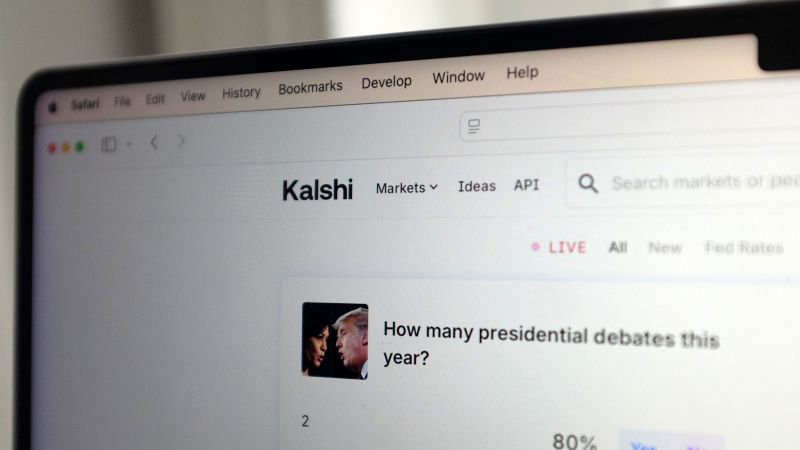A federal appeals court in Washington, DC, has ruled in favor of allowing a prediction market to offer election betting, denying a government watchdog’s request to halt a ruling that permitted legal political gambling in the United States. Kalshi, an online platform where users can bet on the outcomes of future events, relaunched its congressional control contracts shortly after the ruling, allowing Americans to bet on which party will control the House and Senate in 2025. The startup, based in New York, may consider launching more election markets based on this ruling.
The panel of three judges unanimously decided that the Commodity Futures Trading Commission’s concerns about the potential harm to the integrity of elections were not substantiated, thus allowing Kalshi to continue operating while the appeal process unfolds. The judges acknowledged the uncertainty surrounding the effects of Congressional Control Contracts on elections but did not find sufficient evidence to justify halting the platform’s operations. The ruling provides the agency with the opportunity to present more concrete evidence should the risk of irreparable harm become more apparent as the appeal progresses.
Despite the legal battle with the CFTC, Kalshi has maintained that their contracts provide valuable data for election forecasting and enable individuals to hedge their bets on different outcomes. They have pointed to the popularity of offshore crypto-based prediction platforms like Polymarket as evidence of the demand for such services. The court’s decision follows a hearing where the judges questioned the CFTC on the potential impact of political betting markets on election integrity, highlighting concerns about manipulation and misinformation.
During the hearing, the CFTC argued that political betting markets, unlike traditional futures contracts, are vulnerable to manipulation due to the opaque and unreliable sources of information they rely on, such as polls with undisclosed methodologies and fake news reports. The agency expressed concerns about the danger of intensifying the manipulation of elections through the promise of quick profits from election gambling. Kalshi’s attorney emphasized the economic implications of elections and the need for individuals to hedge their risks by investing in event contracts on the platform.
While the legal dispute with Kalshi continues, the CFTC has proposed a broader rule to explicitly ban contracts on the outcomes of elections, awards shows, and sports among other events. CFTC chairman Rostin Behnam highlighted a significant increase in event contracts on CFTC-registered exchanges as the reason behind the proposal. The agency argues that allowing such contracts would exceed its congressional mandate and expertise as a financial markets regulator, leading to potential risks and threats to the integrity of various events including elections. This ruling and ongoing legal battle shed light on the complex and contentious issue of event-based betting in the United States.


